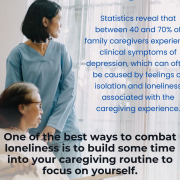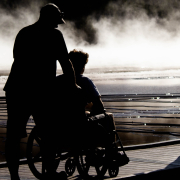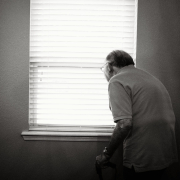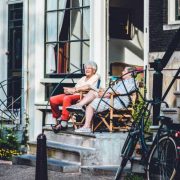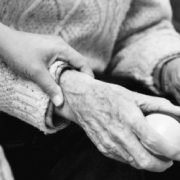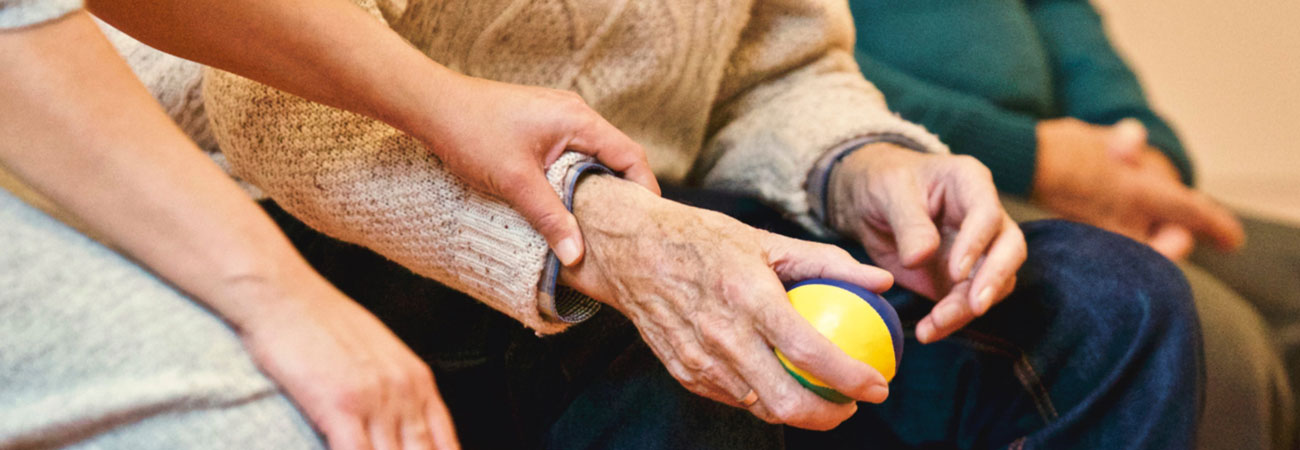How I realized my dad is suffering from Dementia and its first diagnosis
This blog series will contain our story. Our daily struggles and battles, some of which we win, some we don’t, and some we live with to fight another day…

My 94-year-old dad often thinks he is on a train, without any money, and he needs to go home to see his mother! He has been living in Mumbai with me and my mom since April 2018.
Summer of 2014 – Farmington Hills, Michigan, USA
One Friday evening, entering my condo after work, I asked my parents, “Want to go to Randazzo’s tomorrow morning? We can have lunch at the temple thereafter.”
I got an enthusiastic nod from both.
Randazzo’s is a huge vegetable market where you can get many of the Indian vegetables, that too at a great price. Once a month, we would load up and dad would be busy for a few hours cutting vegetables that we could freeze.
He was an expert in selecting coconuts that he would test for sound by banging two against each other. It was an overall event that made him feel useful. Important, because all his life he had contributed to our family as well as our society in some way.
Sitting down and staring at the walls in a place that was cold five months in a year was not his thing. It had already been over a year since my parents had moved from India to live with me permanently. Life had changed dramatically for dad in particular and these outings were one of the few breaks he got from the four walls.
An Introduction to my dad

We celebrated dad’s 90th birthday in October 2014 with a short and sweet religious ceremony at the temple nearby. The few families whose company he enjoyed were there and we all had a great time.
He had begun to show signs of both physical and mental decline in recent times, but he was still was quite healthy considering his age.
He went for his walks with his walking stick, but his mileage was declining. He still overestimated his strength and did way more than most people of his age did.
He was the first one to shower even when it was cold while I snuggled under a blanket wishing it was the weekend. He never missed his hour-long morning prayers; he could recite the long, complex Sanskrit verses of the Rudram by heart.
He liked to proudly tell us (repeatedly) about his retirement from work where he was praised as a ‘human computer’. He was always asking how he could help and never had a reason to postpone things he could do now. He heated his own cup of milk in the microwave both in the morning and evening, did his and mom’s laundry by himself. He was kind, helpful, and a very independent man.
Isolation: An age-old, old age problem!
For most Indian parents visiting their children in the US, the problem of isolation can be significant:
- Bad – They’re removed from their familiar environment and routine.
- Worse – They’re dependent on someone for transportation, especially if they end up in a place like Michigan!
- Worst – Most people they may know are through their children. Those people are much younger and too busy to visit them.
For someone, who craved constant social interaction as my dad did, my mom’s company was one of the few blessings he could count on no matter where he was. He was never someone to watch TV shows or read books. But there was a card game called 56 that he had been passionate about all his life. It had complex rules similar to Bridge. My dad was once a whiz at the game.
Now, they played the game for hours every day. He also loved watching sports on TV. But a day would come soon when he would understand neither card games nor any sports!
2015: Losing his senses (pun intended)
2015 brought a dramatic decline in his physical health. He would pick up a series of bronchial infections that unfailingly escalated to pneumonia and admissions to the ICU!
He almost died during one of these visits, which in hindsight, I guess would not have been such a bad thing! Unfortunately, saving him involved a cocktail of strong antibiotics that severely and permanently affected his hearing. He is a sensitive man and the loss of hearing made him self-conscious and depressed.
I’ve heard that hearing impairment in elders can be a factor leading to Dementia… Perhaps, because they are left alone with their thoughts and are unable to engage completely in the happenings around them. In a cold place like Michigan, it made the isolation from general society much worse. He began to withdraw whenever we had company. He had also lost his sense of smell completely a couple of years before. There is a theory that it could also be indicative of the onset of Dementia.
2016: Surgery and early signs of memory loss

After much hesitation, in January 2016, we decided to get dad’s aortic valve replaced with a slick procedure called TAVR (Transcatheter Aortic Valve Replacement) at the Henry Ford hospital in Detroit.
The surgery was a great success and he never went to the ER or the ICU thereafter. However, at the hospital, he had to sign a consent form with a number of questions, which I attempted to interpret for him. By then, his overall comprehension of such things was already on a downward slope. He trusted us to do the right thing. Again, in hindsight, I sometimes regret our decision that gave him a strong heart and wonder if physical health is really everything.
At the hospital, probably still under the influence of the anesthetics, he angrily complained to us about a nurse who allegedly tried to swindle him. “I am going to complain to the authorities,” he fumed. Another time, he thought he was in a hotel that we were running and gave us a lot of wonderful suggestions to expand the menu as well as ‘our hotel business’!
Blindness sets in
Later that year, he complained of a sudden pronounced blurring of vision in his left eye. He was diagnosed with age-related macular degeneration. Treatment for it entailed many monthly visits to the specialist for OCIs and also a few shots in his eye. He finally lost complete vision in his left eye by the end of the year. Soon, the right eye too became affected by the same condition and total blindness remains a worry to this day.
He was a proud man and it killed him to be dependent with such diminished faculties. He often cried when one of us tried to help him and never failed to thank me when I drove him to his appointments. In his mind, he was a burden and was troubling everyone. I was slowly getting overwhelmed.
2017: Sundowning and the new normal
I hadn’t heard of sundowning back then and therefore, didn’t really understand why he changed unfailingly around 4 pm every day. He would be sitting on his recliner and suddenly start gesturing with his palm as though saying to himself, “I have no idea where I am and what is going on around me!” A lost, helpless look would pervade his face. His behavior was still very mild, but he seemed to perceive the world around him in a way that didn’t match the reality the rest of us experienced.
Dad was now occasionally beginning to lose his way in the house, forgetting where he was and losing recognition of people close to him. During one of our visits to my sister’s in Ohio, he became agitated and went on this rant, “No one told me we were coming here. I didn’t bring any clothes!”
During the same visit, once he woke up in the middle of the night and became disturbed thinking that there was an unfamiliar woman sleeping next to him! He interrogated my mom in great detail with questions about her background, their marriage, and life together.
My mom, who was 88, wasn’t getting a break. Therefore, one weekend, I decided to take both of them to a classical music festival at the Indian temple. It was a day-long event that included lunch. I had moved to one of the front seats as one of my favorite singers was performing. Around 4 pm, I heard someone talking loudly from behind. It was my dad, who had suddenly become anxious that he didn’t have any money with him in case ‘he had to pay for the tickets.’ That day, I learned that I could no longer take him to events that lasted more than an hour or so.
Becoming a Caregiver

My days then began with checking on him and ended with whispering sweet dreams. Most nights, he got up about three times to use the toilet. I woke up each time at night hearing his walker. Usually, I stood hiding behind my door so as to not distract him. Needless to say, I was becoming sleep deprived and cranky both at home and at work.
One morning when both mom and I had overslept until 7 am, we could not find him in his room or the bathroom right next to it. Frantically, I went downstairs looking for him and couldn’t find him there either. Finally, I found him in the basement sitting quietly on a chair. When I asked him why he was there, he replied, “I was looking for the bathroom and couldn’t find it.” There was one on each floor! Luckily, this was a rare occurrence and never happened again.
Intuitively, I realized that he needed an unchanging pattern for every task. He could still shower himself but with the fall risk, I kept his towel, underwear, shirt, pants, etc., exactly at the same spot in the bathroom every day. And everything happened in the same sequence. I was finely tuned to the needs of my father and I kept improving my processes. I came home for lunch and the first thing I verified was that his clothes had changed from the previous day as he sometimes threw his fresh clothes into the laundry basket. While attempting to crack the mystery of his disappearing underwear (I was tired of doing laundry every other day), I found a whole stash of them stuffed into one of the bathroom drawers! He denied doing it.
First diagnosis of Dementia

I wouldn’t have known where to begin but for the presence of a doctor in the family, my elder sister who lived about four hours away. She asked me to take him to a neurologist. My dad was interviewed privately while a social worker discussed my experience at home. She gave me a number of pamphlets about resources, which I never read. I was too tired and was pretty much operating in an exhausted daze.
I believe my dad went through some memory tests. The neurologist didn’t give a formal diagnosis but seemed pretty clear that he needed a prescription to slow down the progression. I knew there was no cure for this hateful thing. Months later, when pushed, she wrote in a letter that he has Dementia with mild to moderate cognitive decline. No MRI was performed as dad wouldn’t have allowed it.
The doctor prescribed the Exelon patch, and when that was not approved by Medicaid, switched to its tablet form. We chose to give him neither. I was afraid of the unknown side effects it would bring.
Thus I began my journey where I lost my father while he was still alive and living in my house! A journey that could have only one end…
To be continued…
